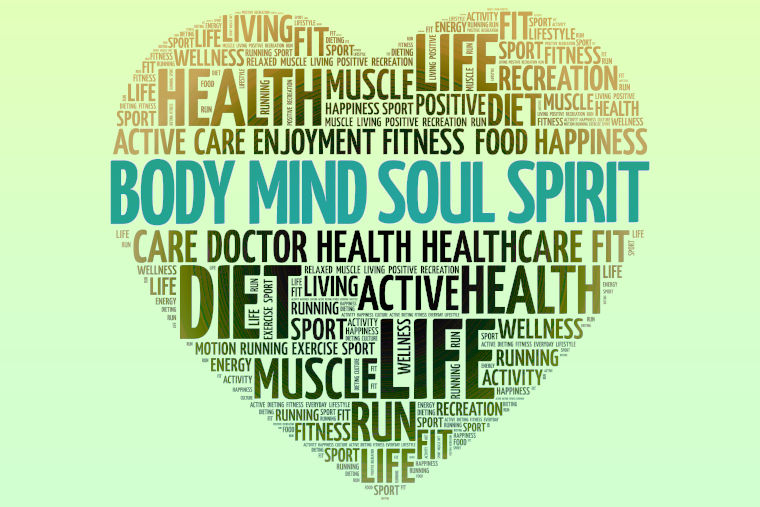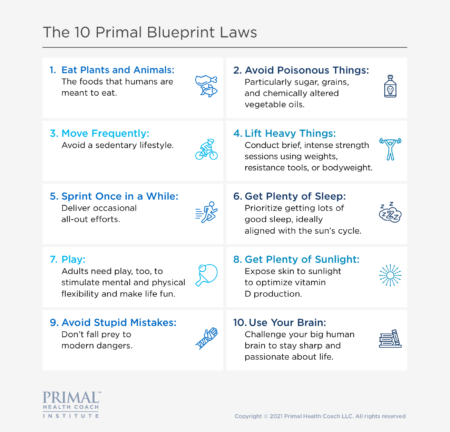
If we approached twenty random health enthusiasts with the question “What is wellness?” we’d get twenty different answers. Even among professionals, “wellness” is an ambiguous term with an elusive definition.
The term really came to life for me when I looked up how wellness is defined by some of the leaders in our industry…
- “Wellness includes all aspects of physical, psychological, spiritual and social well-being; it is multi-dimensional and holistic. Wellness also involves a self-directed and evolving process to achieve full potential.” (NBHWC)
- Wellness is the mastery of one’s physical and mental well-being—weight, fitness, nutrition, stress, health, and the mindset to sustain wellness. (Wellcoaches)
- “Wellness is living your life consciously in ways that improve your health and well-being.” (Arloski, 2014, p. 40)
What Is Wellness Coaching?
If wellness is this all-encompassing, elusive concept that rests upon an individual’s active participation in their own life, body, and well-being, then a wellness coach is a professional guide who supports individuals in the pursuit of personal wellness optimization.
In his book Wellness Coaching for Lasting Lifestyle Change, Michael Arloski explains how wellness coaching is an alliance where a professional applies life coaching principles and processes towards one’s goal of improving their life and achieving a higher level of overall wellness. (2014, p. 40)
Does the pursuit of wellness promote better health?
Yes. Wellness ventures help us get healthier, mentally and physically, and stay healthy in ways other than avoiding illness or disease risk. The pursuit or promotion of wellness means that a person strives to become more resilient, more resistant to disease, and they’re more likely to self-manage their health better because they’re prioritizing their overall well-being.
“Wellness extends the definition of health,” explains John Travis of The WellSpring (creator of the Illness-Wellness Continuum). It suggests an ongoing process of personal growth, greater awareness, and being creatively involved with your physical, psychological, and spiritual well-being.
The professional titles “health coach” and “wellness coach” are often used interchangeably, and sometimes they’re combined into one title as Health and Wellness Coach.
Once you embark on your education to become a certified health coach, you are introduced to an entire world of holistic health concepts and essential building blocks of a person’s well-being. That’s when, if not sooner, it becomes apparent that health coaching is about much more than diet and exercise, or even disease management.
Health and wellness coaching is about behavior change, personal growth, and collaborative efforts to influence one’s experience of well-being. It is an alliance formed in the pursuit of overall wellness.
Well-being is subjective. Someone can be wheelchair-bound, for instance, and still feel strong, resilient, aspirational, and satisfied with their life. To help us understand the many factors that influence a person’s self-perceived state of well-being, let’s consider the following aspects (as compiled by the CDC and researchers from a range of disciplines):
- Physical well-being
- Emotional well-being
- Psychological well-being (happiness, and a sense of purpose or fulfillment)
- Social well-being
- Personal development
- Life satisfaction
- Domain-specific satisfaction
- Engaging work and activities
Thanks to this discussion—and the rising popularity of the keywords “wellness coaching” in Google search rankings—that prompted us to ponder…
Is Wellness Coaching the Future of Health Coaching?
When we consider the list of well-being aspects bulleted above, it is reasonable to deduce that any certified health coach who is helping an individual with self-optimization and holistic principles, aiming to improve one’s perceived state of well-being—beyond nutrition, diet, exercise, and the absence of disease—is likely, therefore, to be fulfilling the role of a wellness coach.
It’s important to note that one’s state of well-being not only requires positive mood states and positive emotions, but well-being also requires an absence of persistent negative emotions like depression and generalized anxiety.
Odds are that you, or someone you live with deals with persistent negative emotions, especially anxiety. As of February 2021, 41.5% of adults in the US report experiencing symptoms of anxiety disorders most days of the week, compared to around 11% of adults who reported symptoms of anxiety and/or depression between August-December of 2019.
The devastating recent increase in mood disturbances and emotional discontent is reason enough to predict that wellness coaching is, indeed, the future of health coaching.
Mental Health America provides this list of the Top 10 Tips for Staying Mentally Stronger and More Hopeful, and as you read, notice how these strategies and behaviors are precisely what a health coach, or wellness coach, is perfectly suited to support others with:
- Connect with others
- Stay positive
- Get physically active
- Help others
- Get enough sleep
- Create joy and satisfaction
- Eat well
- Take care of your spirit
- Deal better with hard times
- Get professional help if you need it
A Primal Perspective
Chronic stress is easily one of the most prolific aspects of our modern health crisis, and it is implicated in many disease progressions. Unmanaged, chronic stress can trigger systemic inflammation which begins the cascade of events that leads to most, if not all, of our diseases of modernity—hypertension, heart disease, stroke, diabetes, etc.
Our human genes were not designed to withstand such constant stress without other necessary inputs that influence resilience and homeostasis. That’s why we spend a large amount of time in the PHCI certification course teaching about sleep, social connections, play, nature, sunlight, and slowing life down.
Even the 10 Primal Blueprint Laws—principles to live by for optimal gene expression—include getting plenty of sleep, plenty of sunlight, playtime (yes, adults need play, too), and using your brain (to stay sharp and passionate about life).
In the PHCI curriculum, we learn about the physiology of stress, the difference between acute stress and chronic stress, the hormones, neurotransmitters, and other body chemistry responsible for the relaxation response, and some common techniques for stress management.
A health and wellness coach should be comfortable supporting the client’s resilience, positive mental health, and well-being. A practicing health coach realizes very quickly that much of the coaching relationship doesn’t center around just food and fitness.
What Is the Role of a Wellness Coach?
According to Arloski, You’re officially wellness coaching if your approach hits these three marks:
- Does this help people reach their full potential?
- Does this recognize and address the whole person in all areas of well-being?
- Does this affirm and utilize people’s positive qualities and strengths?
As health and wellness coaches, we are enlisted to help our clients step into new territories of self-discovery. Inside every person is the urge to stay with the status quo, resisting change or challenges outside of their comfort zone. There’s another part, inside, that whispers feelings of unfulfillment, suggesting that their lives will not feel whole without some important experience or expression. It is the coach’s job to help encourage and guide others through this path of self-exploration and growth.
It is also the coach’s duty to remind people that their day-to-day lives are full of small choices that help inch their way to the life they want to create.
It’s learning to catch yourself in the moment to decide, “Is it worth sacrificing what I want most for what I want now?” Practicing and building upon this self-awareness, realizing that wellness is a choice, is a way of life and an ever-evolving process.
Wellness is about taking charge of your life, appreciating yourself as a growing, fascinating being. And health and wellness coaches are here to help facilitate that.
We’ll conclude with the acknowledgment that having supportive relationships is one of the strongest predictors of well-being, and it has notably positive effects on people’s lives. By being one’s health advocate, health and wellness coaches are fulfilling a need for supportive relationships and increasing one’s quality of life.



